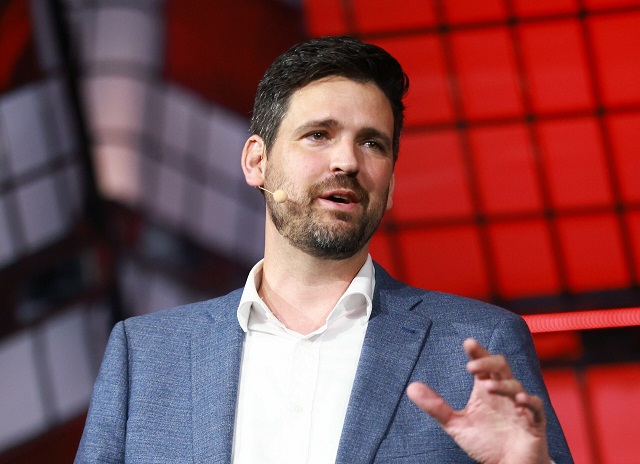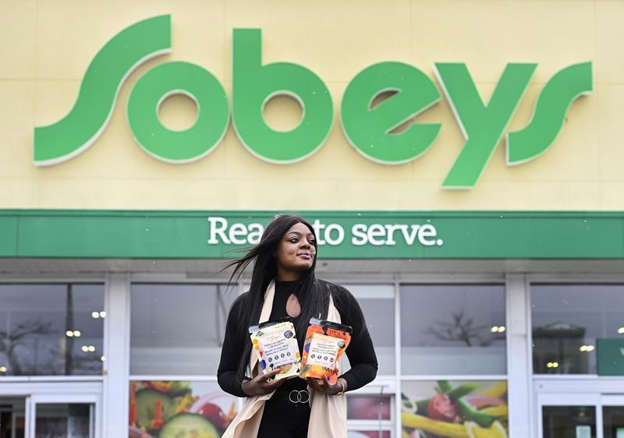Economy
Trudeau gov’t minister takes heat for saying Canadians who ‘can’t work’ should get free housing

Housing Minister Sean Fraser
From LifeSiteNews
Critics called Housing Minister Sean Fraser’s comments ‘full-on communism’ and ‘100% socialism.’
In a scenario akin to the former Soviet Union but not in free market-based Western nations such as Canada, Housing Minister Sean Fraser proclaimed that all Canadians who cannot work should be given free housing.
As per Blacklock’s Reporter, Fraser said recently to Canada’s Senate banking committee that “If you are an adult working in Canada you should be able to buy a home,” adding, “If you cannot work you should have a home too.”
“Government should work together to provide it to you. In a country as wealthy as Canada it is very difficult to accept that people go to sleep without a roof over their head. These problems are solvable,” he said.
Statistics Canada puts the number of unemployed Canadians at 1,229,400. Fraser claims that the government is the one who should solve this, and said, “I do not feel that I have solved the national housing crisis if I am in a city going to an appointment for work and there are people living on the street.”
“We have solved the crisis if we are able to provide affordable rent at the price people are paying right now, and if you are working in a job you can afford to get into the market if that is what works for you,” he added.
Fraser’s comments were immediately blasted as being akin to trying to bring communism to Canada.
“Full-on communism,” wrote Rebel News head Ezra Levant on X (formerly Twitter) on Monday.
One X user, Michelle Phillips, said the issue with homelessness often is that “many of these people CHOOSE not who work.”
“They CAN work but CHOOSE not to. Providing anything for people who don’t want to help themselves or work toward their own future is 100% socialism and Canada is supposed to be a democratic country,” she wrote on X (formerly Twitter).
The reality in Canada today is that mass immigration combined with high interest rates, along with speculative foreign buyers of properties in cities such as Vancouver and Toronto have made housing unfordable for Canadian citizens, as noted by People’s Party of Canada (PPC) leader Maxime Bernier.
According to a Canada Mortgage and Housing Commission report, making homes “affordable” again in Canada would cost $1 trillion, an amount that chief economist Bob Dugan said is “a staggering sum of money.”
Bernier’s PPC says that to solve Canada’s housing crisis, what needs to happen is a “substantial” reduction in “immigration quotas, from about 500k planned by the Liberal government for 2025, down to 100k-150k per year.”
“This will help reduce demand for housing and cool down these markets, especially in the large cities where most immigrants settle,” the PPC leader says.
In 2019, the Trudeau Liberals enshrined “a right to adequate housing” in federal law with the National Housing Strategy Act. Despite this, many have blamed the Liberals’ overspending and inflation-causing measures as making it so that average Canadians cannot buy a home.
Other Liberal ideas with communistic overtones currently in the works include one before the Senate around a “a national framework for a guaranteed livable basic income.”
On October 17, the Canadian Senate’s national finance committee began examining Bill S-233, which would mandate that the Minister of Finance develop a national system to provide “guaranteed livable basic income” to everyone in Canada over age 17.
Jack Fonseca, political operations director for Campaign Life Coalition, told LifeSiteNews that the Trudeau’s communistic or socialist leaning policies are “yet another move by our two socialist parties, the Liberals and NDP, to try to gradually transform Canada into a communist country by making most of the population dependent on government handouts and eliminating the middle class.”
“The truth is that a universal basic income would result in huge numbers of Canadians never wanting to work again,” he warned.
Business
Your $350 Grocery Question: Gouging or Economics?

Dr. Sylvain Charlebois, a visiting scholar at McGill University and perhaps better known as the Food Professor, has lamented a strange and growing trend among Canadians. It seems that large numbers of especially younger people would prefer a world where grocery chains and food producers operated as non-profits and, ideally, were owned by governments.
Sure, some of them have probably heard stories about the empty shelves and rationing in Soviet-era food stores. But that’s just because “real” communism has never been tried.
In a slightly different context, University of Toronto Professor Joseph Heath recently responded to an adjacent (and popular) belief that there’s no reason we can’t grow all our food in publicly-owned farms right on our city streets and parks:
“Unfortunately, they do have answers, and anyone who stops to think for a minute will know what they are. It’s not difficult to calculate the amount of agricultural land that is required to support the population of a large urban area (such as Tokyo, where Saitō lives). All of the farms in Japan combined produce only enough food to sustain 38% of the Japanese population. This is all so obvious that it feels stupid even to be pointing it out.”
Sure, food prices have been rising. Here’s a screenshot from Statistics Canada’s Consumer Price Index price trends page. As you can see, the 12-month percentage change of the food component of the CPI is currently at 3.4 percent. That’s kind of inseparable from inflation.

But it’s just possible that there’s more going on here than greedy corporate price gouging.
It should be obvious that grocery retailers are subject to volatile supply chain costs. According to Statistics Canada, as of June 2025, for example, the price of “livestock and animal products” had increased by 130 percent over their 2007 prices. And “crops” saw a 67 percent increase over that same period. Grocers also have to lay out for higher packaging material costs that include an extra 35 percent (since 2021) for “foam products for packaging” and 78 percent more for “paperboard containers”.
In the years since 2012, farmers themselves had to deal with 49 percent growth in “commercial seed and plant” prices, 46 percent increases in the cost of production insurance, and a near-tripling of the cost of live cattle.
So should we conclude that Big Grocery is basically an industry whose profits are held to a barely sustainable minimum by macro economic events far beyond their control? Well that’s pretty much what the Retail Council of Canada (RCC) claims. Back in 2023, Competition Bureau Canada published a lengthy response from the RCC to the consultation on the Market study of retail grocery.
The piece made a compelling argument that food sales deliver razor-thin profit margins which are balanced by the sale of more lucrative non-food products like cosmetics.
However, things may not be quite as simple as the RCC presents them. For instance:
- While it’s true that the large number of supermarket chains in Canada suggests there’s little concentration in the sector, the fact is that most independents buy their stock as wholesale from the largest companies.
- The report pointed to Costco and Walmart as proof that new competitors can easily enter the market, but those decades-old well-financed expansions prove little about the way the modern market works. And online grocery shopping in Canada is still far from established.
- Consolidated reporting methods would make it hard to substantiate some of the report’s claims of ultra-thin profit margins on food.
- The fact that grocers are passing on costs selectively through promotional strategies, private-label pricing, and shrinkflation adjustments suggests that they retain at least some control over their supplier costs.
- The claim that Canada’s food price inflation is more or less the same as in other peer countries was true in 2022. But we’ve since seen higher inflation here than, for instance, in the U.S.
Nevertheless, there’s vanishingly little evidence to support claims of outright price gouging. Rising supply chain costs are real and even high-end estimates of Loblaw, Metro, and Sobeys net profit margins are in the two to five percent range. That’s hardly robber baron territory.
What probably is happening is some opportunistic margin-taking through various selective pricing strategies. And at least some price collusion has been confirmed.
How much might such measures have cost the average Canadian family? A reasonable estimate places the figure at between $150 and $350 a year. That’s real money, but it’s hardly enough to justify gutting the entire free market in favor of some suicidal system of central planning and control.
Business
The Grocery Greed Myth

Haultain’s Substack is a reader-supported publication.
To receive new posts and support our work, please consider becoming a free or paid subscriber.
Try it out.
The Justin Trudeau and Jagmeet Singh charges of “greedflation” collapses under scrutiny.
“It’s not okay that our biggest grocery stores are making record profits while Canadians are struggling to put food on the table.” —PM Justin Trudeau, September 13, 2023.
A couple of days after the above statement, the then-prime minister and his government continued a campaign to blame rising food prices on grocery retailers.
The line Justin Trudeau delivered in September 2023, triggered a week of political theatre. It also handed his innovation minister, François-Philippe Champagne, a ready-made role: defender of the common shopper against supposed corporate greed. The grocery price problem would be fixed by Thanksgiving that year. That was two years ago. Remember the promise?
But as Ian Madsen of the Frontier Centre for Public Policy has shown, the numbers tell a different story. Canada’s major grocers have not been posting “record profits.” They have been inching forward in a highly competitive, capital-intensive sector. Madsen’s analysis of industry profit margins shows this clearly.
Take Loblaw. Its EBITDA margin (earnings before interest, taxes, depreciation, and amortization) averaged 11.2 per cent over the three years ending 2024. That is up slightly from 10 per cent pre-COVID. Empire grew from 3.9 to 7.6 per cent. Metro went from 7.6 to 9.6. These are steady trends, not windfalls. As Madsen rightly points out, margins like these often reflect consolidation, automation, and long-term investment.
Meanwhile, inflation tells its own story. From March 2020 to March 2024, Canada’s money supply rose by 36 per cent. Consumer prices climbed about 20 per cent in the same window. That disparity suggests grocers helped absorb inflationary pressure rather than drive it. The Justin Trudeau and Jagmeet Singh charges of “greedflation” collapses under scrutiny.
Yet Ottawa pressed ahead with its chosen solution: the Grocery Code of Conduct. It was crafted in the wake of pandemic disruptions and billed as a tool for fairness. In practice, it is a voluntary framework with no enforcement and no teeth. The dispute resolution process will not function until 2026. Key terms remain undefined. Suppliers are told they can expect “reasonable substantiation” for sudden changes in demand. They are not told what that means. But food inflation remains.
This ambiguity helps no one. Large suppliers will continue to settle matters privately. Small ones, facing the threat of lost shelf space, may feel forced to absorb losses quietly. As Madsen observes, the Code is unlikely to change much for those it claims to protect.
What it does serve is a narrative. It lets the government appear responsive while avoiding accountability. It shifts attention away from the structural causes of price increases: central bank expansion, regulatory overload, and federal spending. Instead of owning the crisis, the state points to a scapegoat.
This method is not new. The Trudeau government, of which Carney’s is a continuation, has always shown a tendency to favour symbolism over substance. Its approach to identity politics follows the same pattern. Policies are announced with fanfare, dissent is painted as bigotry, and inconvenient facts are set aside.
The Grocery Code fits this model. It is not a policy grounded in need or economic logic. It is a ritual. It gives the illusion of action. It casts grocers as villains. It gives the impression to the uncaring public that the government is “providing solutions,” and that “it has their backs.” It flatters the state.
Madsen’s work cuts through that illusion. It reminds us that grocery margins are modest, inflation was monetary, and the public is being sold a story.
Canadians deserve better than fables, but they keep voting for the same folks. They don’t think to think that they deserve a government that governs within its limits; a government that accept its role in the crises it helped cause, and restores the conditions for genuine economic freedom. The Grocery Code is not a step in that direction. It was always a distraction, wrapped in a moral pose.
And like most moral poses in Ottawa, it leaves the facts behind.
Haultain’s Substack is a reader-supported publication.
To receive new posts and support our work, please consider becoming a free or paid subscriber.
Try it out.
-

 COVID-192 days ago
COVID-192 days agoDevastating COVID-19 Vaccine Side Effect Confirmed by New Data: Study
-

 Red Deer2 days ago
Red Deer2 days agoThe City of Red Deer’s Financial Troubles: Here Are The Candidates I Am Voting For And Why.
-

 Crime2 days ago
Crime2 days agoCanadian Sovereignty at Stake: Stunning Testimony at Security Hearing in Ottawa from Sam Cooper
-

 Business2 days ago
Business2 days agoCanada Post is failing Canadians—time to privatize it
-

 Haultain Research2 days ago
Haultain Research2 days agoInclusion and Disorder: Unlearned Lessons from Palestinian Protests
-

 Business2 days ago
Business2 days agoYour $350 Grocery Question: Gouging or Economics?
-

 2025 Federal Election9 hours ago
2025 Federal Election9 hours agoProtestor Behind ‘Longest Ballot’ Chaos targeting Poilievre pontificates to Commons Committee
-

 Media2 days ago
Media2 days agoResponse to any budget sleight of hand will determine which audience media have decided to serve











